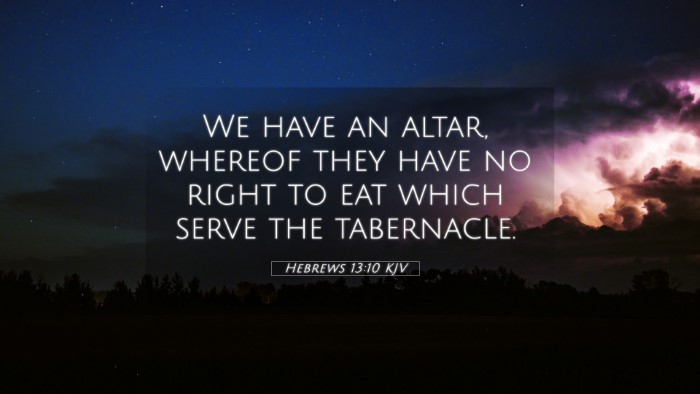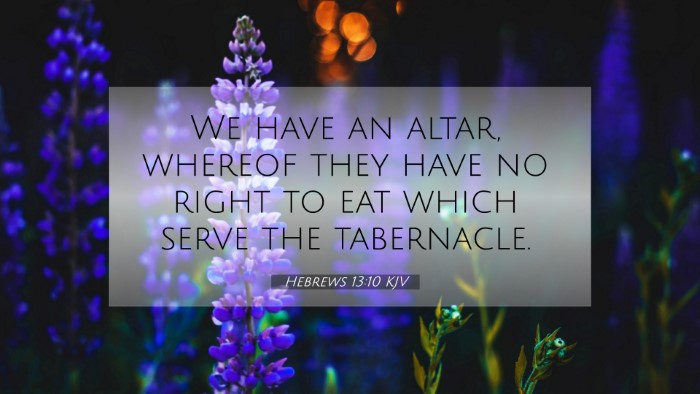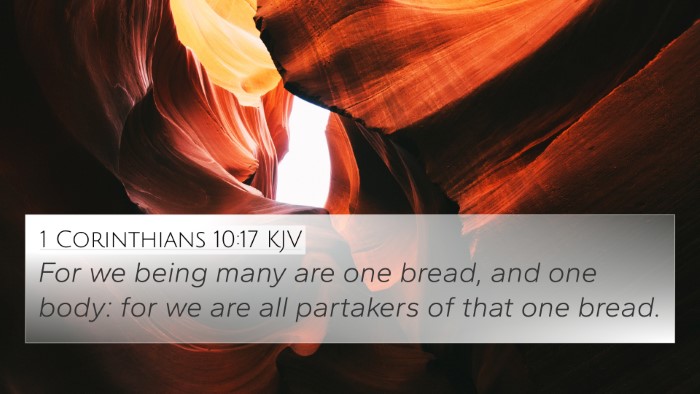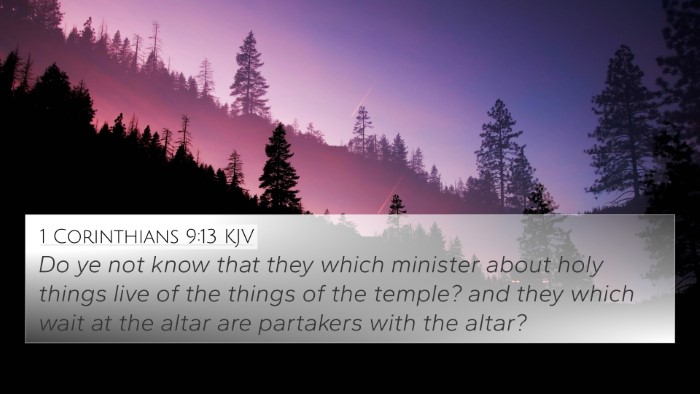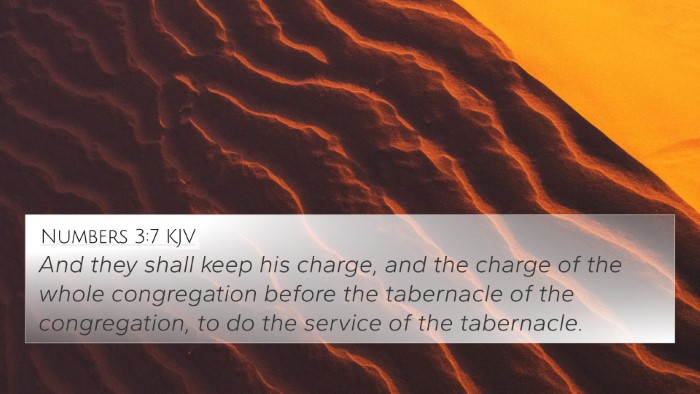Bible Verse Meaning of Hebrews 13:10
Hebrews 13:10 states: "We have an altar from which those who minister at the tabernacle have no right to eat." This verse touches upon profound theological themes, including the contrast between the sacrificial system of the Old Covenant and the sacrifice of Christ in the New Covenant.
Contextual Background
The letter to the Hebrews addresses Jewish Christians who may have been tempted to revert to the old ways of worship associated with the Mosaic law. The author emphasizes that the new altar, representing the ultimate sacrifice of Christ, is superior to the old system.
Key Insights from Commentaries
- Matthew Henry: Henry highlights that the altar represents the sacrificial work of Christ. Unlike the Levitical priests, who could not partake of the offerings made for sin, believers in Christ partake of the benefits of His sacrifice.
- Albert Barnes: Barnes notes that the phrase "we have an altar" signifies the establishment of a new worship system. He emphasizes that it contrasts with the Jewish rituals, indicating that the Old Covenant priests are excluded from the blessings of the New Covenant.
- Adam Clarke: Clarke elaborates on the significance of the altar. He indicates that it is a reference to the cross of Christ, urging believers to embrace the new faith rather than the old forms of worship.
Theological Implications
This verse underscores the importance of the New Covenant established through Jesus' sacrifice. It highlights the complete nature of Christ's atonement and the limitation of the Levitical priesthood.
Cross-References
Hebrews 13:10 can be understood in light of several key passages:
- Hebrews 9:11-12: Explains Christ as the high priest of the good things to come, who entered the holy place once for all.
- Hebrews 10:11-14: Discusses the difference between the sacrifices of the Old Covenant and the single sacrifice of Christ.
- 1 Corinthians 10:21: States that you cannot drink the cup of the Lord and the cup of demons, reinforcing the exclusivity of Christ's offering.
- Galatians 5:4: Discusses falling away from grace by returning to a system of law that cannot justify.
- Romans 12:1: Calls for presenting oneself as a living sacrifice, a spiritual act of worship tied to the sacrifice of Christ.
- Colossians 2:16-17: Addresses the shadow of the Old Covenant compared to the substance found in Christ.
- John 14:6: Affirms Christ as the way, truth, and life, establishing the foundation for the new altar.
Conclusion
Hebrews 13:10 serves as a reminder of the foundational truths of Christianity regarding sacrifice and worship. Through exploring this verse alongside its cross-references, one can gain insight into the deep connections within Scripture and the unifying theme of Christ as the ultimate sacrifice.
Tools for Bible Cross-Referencing
For those studying the Bible, utilizing tools for cross-referencing can significantly enhance understanding:
- Bible Concordance: A helpful tool for finding connections between words and themes.
- Bible Cross-Reference Guide: Useful for identifying related verses and themes across the biblical text.
- Cross-Reference Bible Study: A method to deepen insights by systematically comparing relevant scriptures.
- Bible Reference Resources: Books and online tools that provide comprehensive references between verses.
- Bible Chain References: A technique that links verses thematically or contextually for deeper study.
Long-Tail Keywords Incorporation
This exploration of Hebrews 13:10 emphasizes methods like cross-referencing Bible verses that relate to each other. It provides a practical approach to identifying connections between the Old and New Testament, particularly in the context of understanding sacrificial themes.
User Intent Keywords Consideration
For further exploration, consider questions such as:
- What verses are related to Hebrews 13:10?
- How do Hebrews 9:11-12 and Hebrews 13:10 connect?
- Are there similarities between the Old Covenant practices and the New Covenant teachings, as stated in Hebrews 13:10?

